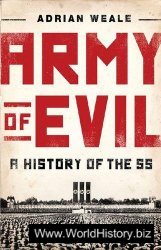There is also the possibility that Mao was influenced by events in the USSR: 1956 was the year that the new Soviet leader, Nikita Khrushchev, shook the communist world by launching an extraordinary attack on the reputation of his predecessor, Joseph Stalin, who had died three years earlier. Khrushchev denounced Stalin for his 'cult of personality' (see page 49). Mao could see how easily this charge could be made against him in China. His apparent encouragement of criticism from within the Party was, therefore, a way of taking the sting out of such a suggestion and preventing the comparison being made between him and Stalin. However, if Mao had indeed launched the 100 Flowers out of a fear of being compared with Stalin, the fear greatly lessened from late 1956. In November of that year Khrushchev sent Soviet tanks into Budapest to crush the Hungarian Uprising. That was the Soviet leader's way of making it clear that de-Stalinization did not mean the lessening of the grip of the Communist Party over the USSR or the weakening of Soviet control over the Eastern bloc.
Mao fully approved of the Soviet action for two reasons. In the first place, he believed it was the kind of tough line that communist governments should take in order to maintain their authority. In the second, he was relieved by the knowledge that the Soviet Union had merely been flirting with liberal ideas. This meant that he did not need to compete with Khrushchev in the defence of hardline communism. Neither leader had any intention of relaxing his political control over the people.
It might be wondered why Mao was so sensitive to happenings in the USSR. The answer is that, at this early stage of its development, the PRC still regarded itself as being dependent on the economic and diplomatic support of the Soviet Union. It would not be until later that Mao and the Chinese Communists would feel strong enough to throw off Soviet dominance and challenge the USSR for the leadership of international communism.




 World History
World History









